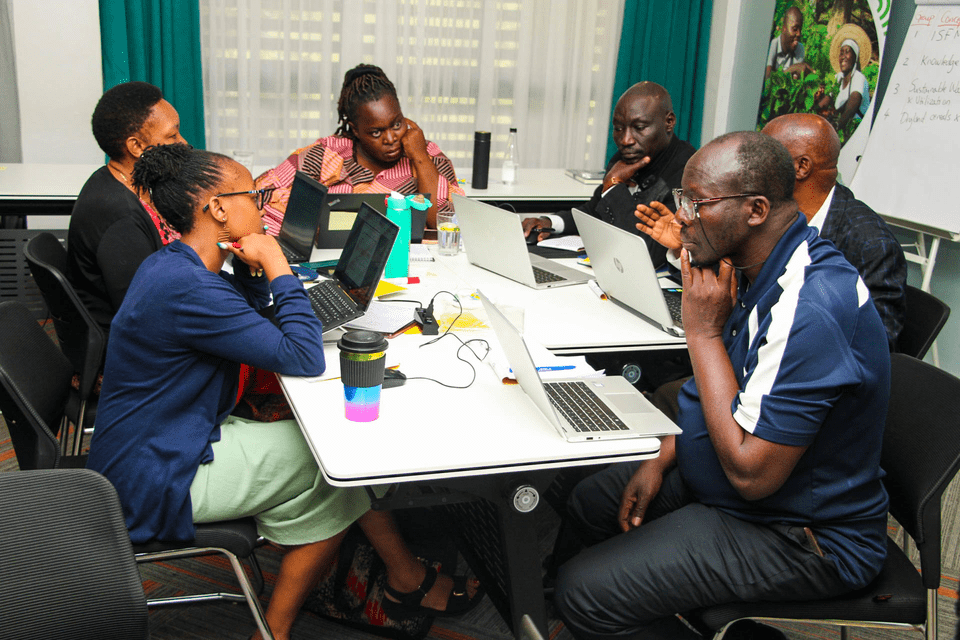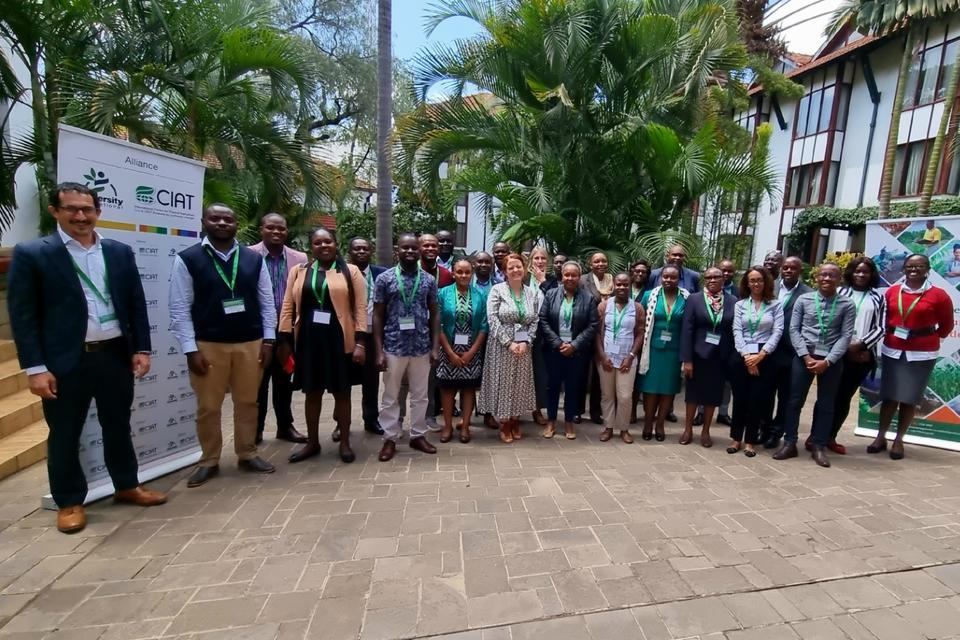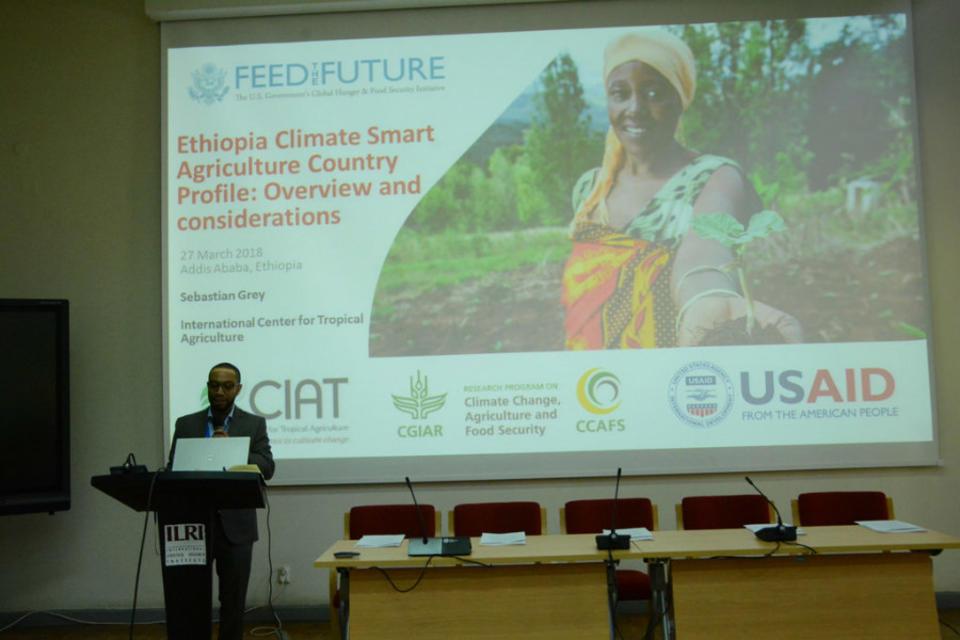From the Field Sowing Seeds of Resilience: Transforming Kenya's Makueni County with Climate-smart Agriculture
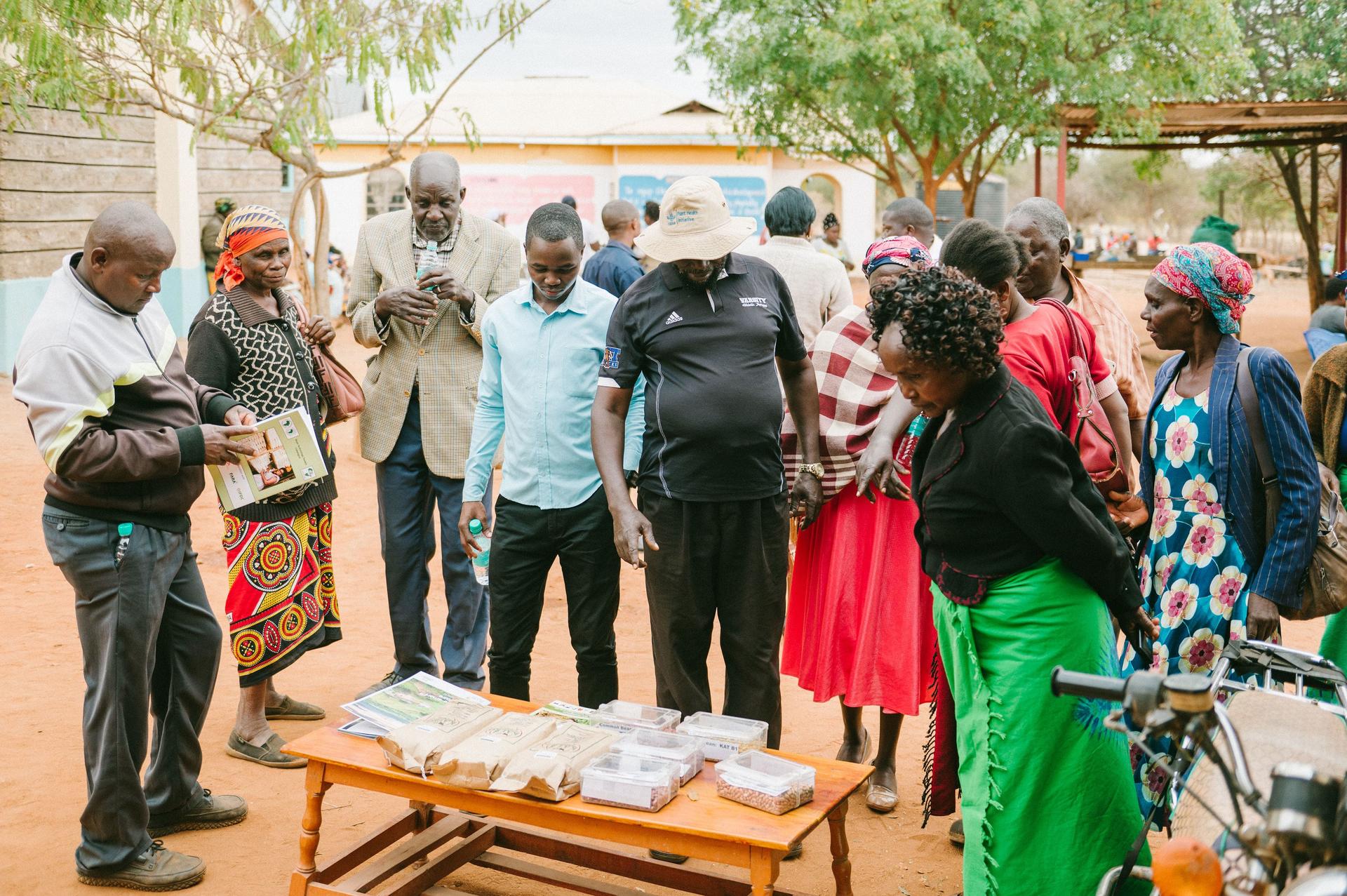
In the heart of Kenya's Makueni County, the impacts of climate change reverberate, threatening the foundation of the country's economy which relies heavily on agriculture.
By: Ivy Kinyua, Boaz Waswa, Noel Templer, Ann Mucemi, and Esther Nzuki
As a country with arid and semi-arid land, the effects of climate change put food security and many livelihoods at stake, demanding an urgent shift towards resilient and sustainable farming.
Climate-smart agriculture (CSA) offers solutions by promoting practices that enhance productivity, and climate change mitigation and adaptation. However, CSA technologies are highly diverse and vary between productions systems and regions. Therefore, adopting these practices requires knowledge, access to relevant climate information and the collective effort of farmers and stakeholders.
The Alliance, through the AICCRA project (Accelerating the Impact of CGIAR Climate Research for Africa), acknowledges the essential role of capacity building and knowledge dissemination in promoting the widespread adoption of CSA. This work focuses on enabling the effective implementation of integrated practices, which although complex, can be vital for resilient agriculture. In a significant step towards achieving this, the Alliance - in collaboration with the County Government of Makueni, the Women Farmers Association of Kenya, and the Kimatwa Women Savings and Credit Cooperative Society (a dynamic women-led farmers’ cooperative) - organized a two-day training program on CSA, reaching 360 farmers: 268 women and 92 men. The choice of the Women Farmers Association and Kimatwa Women SACCO as collaborators for the training is a reflection and recognition of the important role of women in agriculture and their vulnerability to climate change. Working through the cooperative allowed the partners to reach hundreds of farmers and increase the project's impact. Similarly, some of the farmers in the SACCO were part of AICCRA-led demonstrations where a micronutrient-rich and drought-tolerant bean variety performed exceptionally well.
This training aimed to empower farmers with the necessary knowledge to embrace CSA and adopt sustainable and productive farming systems. In line with AICCRA’s goal to build resilience, the training focused on the importance of adopting CSA in the face of increasing climate risks. Farmers learned about the synergies between different CSA practices for improved agricultural productivity and enhanced resilience. Delving deeper into CSA, the training highlighted various validated CSA and Climate Information Services (CIS) technologies and practices that have been tested and successfully applied in the Makindu and larger Makueni counties, demonstrated their effectiveness in adapting to climate risks. From farm mechanization, improved seeds, water conservation technologies and sustainable soil management strategies, farmers discovered the variety of practices available to theml. The training also emphasized the value of harnessing constructive collaboration for enhanced productivity by integrating complementary technologies.
Recognizing the important role of cooperatives in enhancing farm incomes and building resilience, the training by WoFaAK explored group dynamics, leadership, and governance in a cooperative setting. Together, the trainings empowering farmers with information on how to increase cooperation, improve the marketing of their commodities, drive change within their communities, and promote climate-smart agricultural practices.
To increase farmers' understanding of these concepts, the trainings used diverse learning aids using videos such as the Shamba Shape up series on climate adaptation, animations on climate change, learning zones where pictures of CSA in practice demonstrated the use of digital climate information tools such as the Kenya Agricultural Observatory Platform (KAOP). Additionally, a showcase desk displayed improved drought-tolerant seeds such as the high-iron and high-zinc beans Nyota and Faida, and GADAM sorghum seeds, further emphasizing the potential for enhanced yields through innovative inputs and crop diversification. As a gift, CSA manuals were shared with the farmers to serve as a references, empowering them to apply the knowledge gained, and continue their journey towards a more sustainable and resilient future.
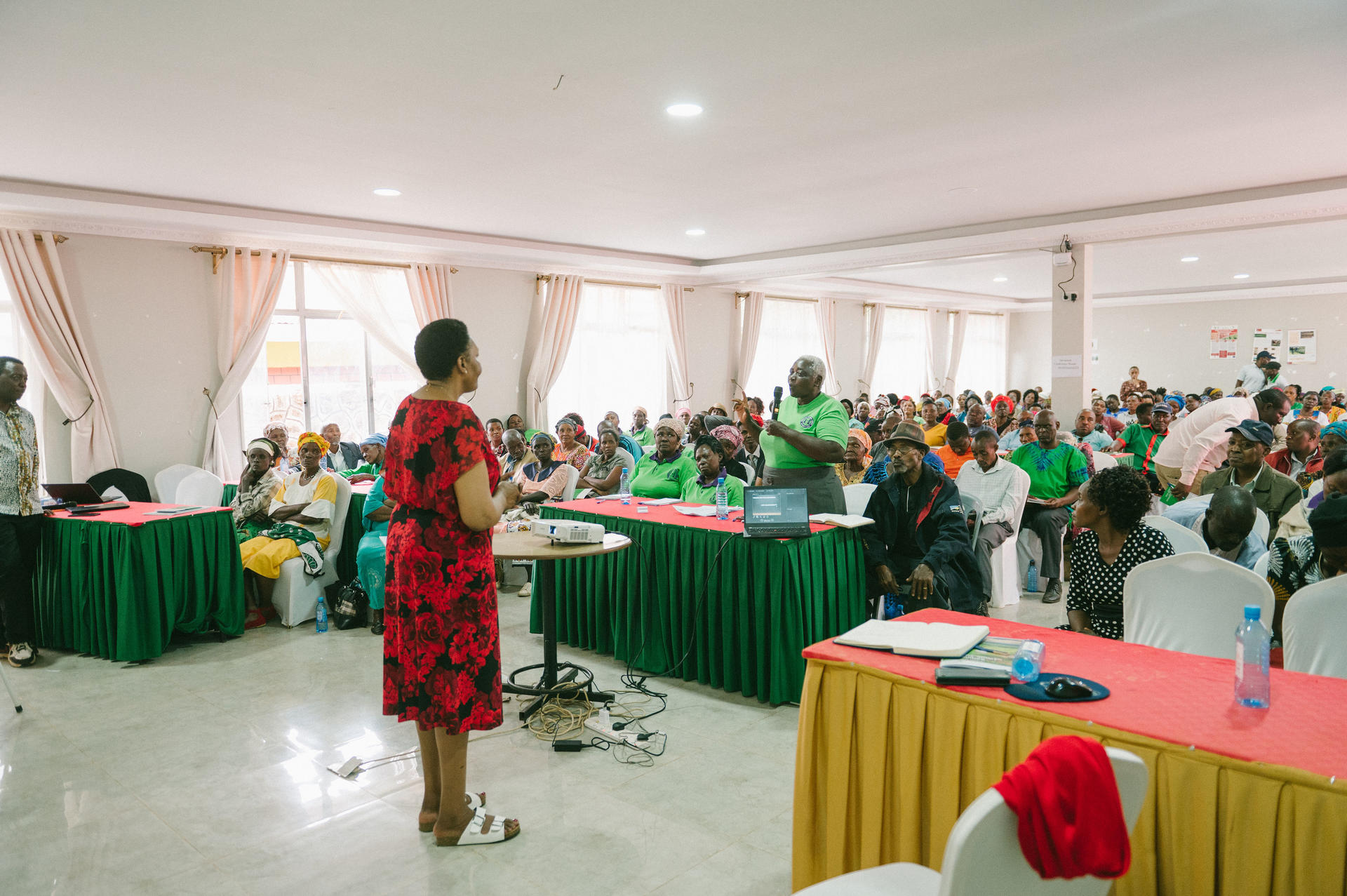
Part of our strategy as the Alliance is to drive tangible and scalable change from local to global levels. To do so, we plan to link this training with the Makueni AICCRA demonstration sites that highlight CSA practices in action and provide practical learning experiences for farmers. The demo sites are co-designed with the farmers, and entail bundling technologies, practices and information. By connecting the training participants with these demonstration sites, we aim to foster even deeper learning opportunities. Farmers will have the chance to see the successful implementation of CSA practices in their local context. They will interact with experts, exchange knowledge, and gain valuable insights into tailoring these practices to suit their specific farming needs.
Our aspiration is that this practical learning experience will further enhance the knowledge and skills acquired during the training. Armed with the power of experiential learning, we hope that Makueni farmers can confidently adopt CSA practices, ensuring their effective implementation and maximizing their impact on agricultural productivity and resilience.
Meet the Team

Boaz S. Waswa
Scientist

